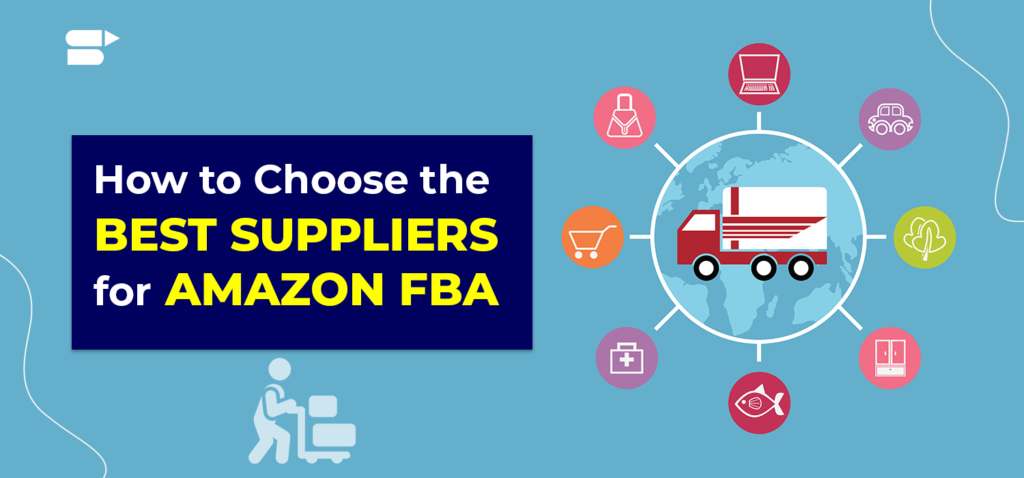
Introduction
In the competitive landscape of Amazon FBA, sourcing products from trustworthy wholesale suppliers is paramount. Reliable suppliers ensure consistent product quality, timely deliveries, and competitive pricing, all of which are crucial for maintaining positive seller ratings and achieving long-term profitability. This guide delves into expert tactics for identifying and partnering with dependable wholesale suppliers, helping you scale your Amazon business with confidence.
Understanding the Amazon FBA Wholesale Model
The Amazon FBA (Fulfillment by Amazon) wholesale model involves purchasing products in bulk from manufacturers or distributors and reselling them on Amazon. This model offers several advantages:
- Established Demand: You’re selling products that already have market demand, reducing the risk associated with launching new products.
- Simplified Logistics: Amazon handles storage, packaging, and shipping, allowing you to focus on sourcing and sales.
- Scalability: With the right suppliers, you can scale your operations efficiently to meet increasing demand.
However, the success of this model heavily relies on the quality and reliability of your wholesale suppliers.
Key Traits of Reliable Wholesale Suppliers
When evaluating potential suppliers, consider the following attributes:
1. Authenticity and Authorization
Ensure the supplier is an authorized distributor or manufacturer. This guarantees product authenticity and reduces the risk of counterfeit goods, which can lead to account suspensions.
2. Consistent Product Quality
Reliable suppliers maintain high-quality standards across all products. Consistent quality minimizes returns and negative reviews, enhancing customer satisfaction.
3. Competitive Pricing
Access to wholesale pricing allows for healthy profit margins. Compare pricing across multiple suppliers to ensure you’re getting the best deal without compromising quality.
4. Efficient Communication
A responsive supplier who communicates effectively can address issues promptly, ensuring smooth operations.
5. Scalability
As your business grows, your supplier should be able to accommodate larger orders and increased demand without delays.
Strategies for Finding Reliable Wholesale Suppliers
1. Utilize Reputable Directories
Start your search with established wholesale directories:
- Wholesale Central: Offers a vast database of verified suppliers across various industries.
- Worldwide Brands: Provides access to certified wholesalers and dropshippers.
- SaleHoo: Features a comprehensive directory of suppliers, along with market research tools.
These platforms vet their listed suppliers, reducing the risk of scams.
2. Attend Trade Shows and Industry Events
Trade shows offer opportunities to meet suppliers face-to-face, assess product quality firsthand, and negotiate terms. Events like the Global Sources Summit and ASD Market Week are popular among Amazon sellers.
3. Leverage Online Marketplaces
Platforms like Alibaba and Global Sources connect you with international suppliers. While these platforms offer a wide range of products, exercise due diligence by requesting samples and verifying supplier credentials.
4. Network Within Seller Communities
Join Amazon seller forums, Facebook groups, and LinkedIn communities. Engaging with experienced sellers can lead to supplier recommendations and insights into sourcing strategies.
5. Contact Manufacturers Directly
If you’re interested in specific brands, reach out to manufacturers to inquire about authorized distributors or wholesale programs. This approach can lead to exclusive deals and better pricing.
Avoiding Common Pitfalls in Supplier Sourcing
1. Neglecting Due Diligence
Always verify a supplier’s legitimacy. Request business licenses, check reviews, and consider third-party audits if necessary.
2. Overlooking Minimum Order Quantities (MOQs)
Ensure the supplier’s MOQs align with your budget and storage capabilities. Ordering more than you can handle can lead to cash flow issues.
3. Ignoring Shipping and Lead Times
Understand the supplier’s shipping processes and lead times. Delays can result in stockouts, affecting your Amazon rankings and sales.
4. Failing to Request Samples
Before placing large orders, request product samples to assess quality and suitability for your target market.
Building Strong Supplier Relationships
Establishing and maintaining good relationships with suppliers can lead to better terms, priority service, and access to exclusive products. Here are some tips:
- Communicate Regularly: Keep open lines of communication to address issues promptly.
- Be Transparent: Share your business goals and expectations to align with your supplier’s capabilities.
- Honor Agreements: Adhere to payment terms and order commitments to build trust.
- Provide Feedback: Offer constructive feedback on products and services to foster continuous improvement.
Conclusion
Finding reliable wholesale suppliers is a critical component of a successful Amazon FBA business. By leveraging reputable directories, attending industry events, networking within seller communities, and conducting thorough due diligence, you can establish strong supplier partnerships. Avoid common pitfalls by staying informed and proactive in your sourcing strategies. With the right suppliers, you can scale your Amazon business confidently and sustainably.
For more insights and resources on Amazon wholesale strategies, visit Amazon Wholesale Supplier.
